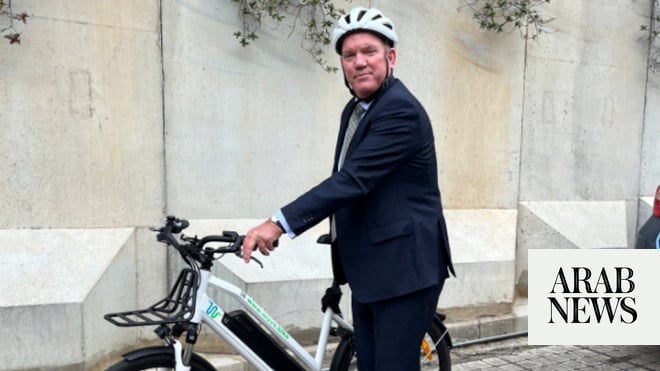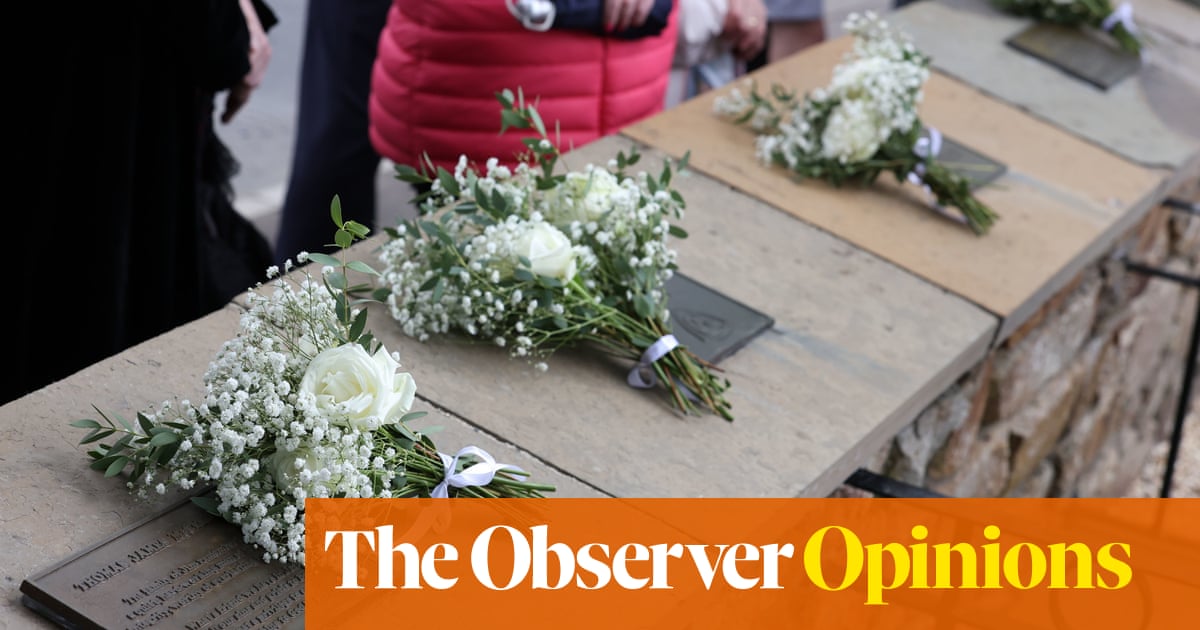
Hans Peter van der Woude, the Dutch ambassador to Lebanon, was praised for setting an example in a country facing a growing traffic crisis
He posted a photo on Twitter of himself and his bicycle, sparking an online debate and criticism of the government for failing to tackle transport problems
LONDON: While Lebanese politicians typically travel in multi-car motorcades, at least one European diplomat is beating the heavy Beirut traffic by getting on a bike.
In a message posted on Twitter on Thursday, Hans Peter van der Woude, the Dutch ambassador to Lebanon, posted a photo of himself wearing a helmet and standing next to an e-bike as he prepared to set off for a meeting.
The photo sparked an online debate about the country’s traffic problems, with many people praising him as an “example” for everyone to follow.
“Setting a great example. Drive safely,” one user wrote.
Another asked the envoy whether he feels safe cycling around the busy streets of the capital.
“I felt really comfortable on a bicycle in traffic,” van der Woude replied. “Just because drivers are not used to cyclists, they are more careful. One has to be vigilant though, like everyone in Lebanese traffic.”
He added that he completes his journeys really quickly compared with people in cars, who often get stuck in traffic jams.
Nasser Yassin, Lebanon’s environment minister, retweeted the envoy’s photo, thanked him and said the government backs the use of non-motorized transport options, also known as “soft mobility.”
“We are supporting initiatives that will promote soft mobility in Beirut and other cities; but we need to work more with municipalities and others to create the right environment for soft mobility in our cities,” he wrote.
However, the minister faced criticism from people who accused him of hypocrisy, given the lack of a government strategy to tackle Lebanon’s traffic problems.
One person wrote: “Mr. Nasser Yassin, in your government’s ministerial statement, you announced ‘the pursuit of a comprehensive transport plan and the adoption of a partnership mechanism between the public and private sectors.’ And you, with this tweet, are encouraging support for soft mobility initiatives. Can you tell us how and what you have accomplished or what you intend to accomplish … apart from tweeting on Twitter?”
In recent years, traffic congestion in Lebanon has increased as a result of the poor state of roads, the growing number of vehicles using them, and a flawed public-transport system. According to World Bank-affiliated Urban Transport Development Project, people in Lebanon spend an estimated average of 720 hours in vehicles each year.
Officials have promised to find solutions to the over-reliance on private vehicles in the country but have been accused of hypocrisy on the issue. In 2017, for example, the Lebanese government was criticized for purchasing, or receiving as grants and donations, an “excessively large number of vehicles” for use by ministries, departments, public institutions and municipalities.
The government was also accused of breaking laws and regulations by using money from the public purse to pay for maintenance, insurance, fuel and other expenses arising from the use of an estimated 12,000 government-owned vehicles.












